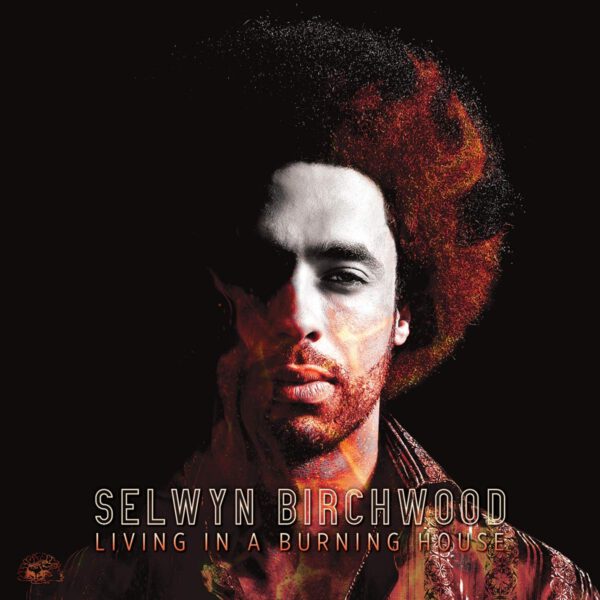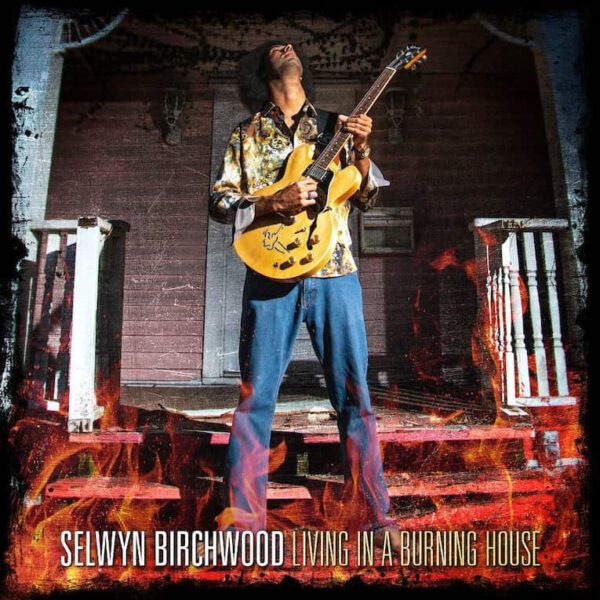
Interview I Selwyn Birchwood
Text: Iain Patience
Selwyn Birchwood is a bluesman with a fiery determination to push the edges of modern blues music. Never content to sit back and deliver covers of either classic blues standards or other writers’ material, he always looks to change the narrative, turning out his own work with a clear blues feel and a soulful, burning heart.
Backed by a band of blues buddies, most of whom have been with him many years, he signed to leading blues label, Alligator Records in 2014. A move that has seen him prosper as a musician while pushing the band onto ever-greater things. With a new album about hit the streets around the turn of the year, Birchwood confirms that he’s eager to get back on the road to promote and expose the release to a growing hoard of global fans and says he and the guys are badly missing touring in these Covid-restricted times.
Chatting with Floridian Birchwood, he bemoans the current restrictions and limitations now placed on him and the band: “It’s real hard to be a musician when there’s no concerts. We’re getting virtually nothing right now, like everybody else, maybe one or two gigs every now and then. It’s not what we’re used to. We’re a busy band, generally out on the road, covering the country and hitting Europe as often as we can,” he confirms.
And with Birchwood’s constant need and ambition to produce self-written material, when I ask if the near-lockdown situation might not be a blessing in disguise in some weird way, he laughs and partly agrees: “Yea, I’m using the time to write, using my sort-of downtime to work at home, writing new songs, practising guitar more than ever and looking ahead to the next one!”

The new album, ‘Living In A Burning House’ was a few years in the overall making, with Birchwood writing the songs, chopping and changing the sound, the lyrics, the thinking and the ethos behind it all: “This is my fifth album, and my third with Alligator. I always want my own sound, material and my own stamp on my music. I don’t really understand why many still want to, or seem happy to, cover old blues music. Blues has to change. It has to grow if it’s to have any relevance. I mean, some of those old standards, the stuff that’s always being covered, is now around a hundred years old. It really has to always move forward. That’s what blues is and has always been about!”
“Take Willie Dixon, he wrote so many great songs but I’m sure he wasn’t thinking, ‘I better stay inside some parameter or other!’ He was just writing all of the time, developing and moving ahead with each song,” he adds by way of explanation and, perhaps, inspiration.
Listening to the new album, ‘Living In A Burning House’ it’s clear that Birchwood is onto something with his thinking. For this is an album that is instantly blues but with a modern edge and feel. Birchwood’s own fretwork is always on the button, with some wonderful, perfectly pitched slide-work included, and lyrics that pulse with meaning and thoughtfulness. For my money, this is readily Birchwood’s finest offering to date and must presage much more to come on the blues horizon.
Birchwood reckons the entire project took between two and two-and-a-half years to put together, including the writing, and is evidently delighted to have leading US producer, Tom Hambridge on-board this time round: “This is something I’m real proud of. I think we’ve got the sound I was aiming for, our own sound here. There was a real joy making this, a joy of music, I guess. I don’t how to be like anyone else. I don’t know how to be anyone but me,” he laughs.
Birchwood had met Hambridge and asked if he might be prepared to help with production duties. Getting a tentative affirmation, he sent rough cuts of the material to him and was relieved and pleased to get the thumbs-up from the greatly in-demand producer.

“I think we all aimed to produce something as uplifting as possible. It all came together so well from start to finish. I’d met Tom – we’d done a few shows in the past with buddy guy – and tom was around at times. I just took a chance and asked if he’d produce the album for me. He said ‘yes!’ It was cool.”
I first met Birchwood some years ago in 2013, a few short months after the band had won the IBC at Memphis and Birchwood himself had picked up the Albert Cummings Best Guitarist Award. We poke then, following a great set at the USA’s major festival in Portland, Oregon, the Waterfront Blues festival. It seemed clear back then that despite having yet to deliver an album and having no recording contract then on the cards, that was always gonna change. Soon afterwards, Bruce Iglauer made contact and invited the band to submit a demo of their material for consideration. At the time Birchwood didn’t have enough for an entire album and was fortunate when Iglauer was sufficiently impressed by what he heard to invite the band to send in more when it was ready and available. Birchwood followed up on the suggestion and confirms that things have worked out great for him and the band ever since:
“We all get on great. Alligator is wonderful. I feel blessed to be working with them. It’s a whole team at Alligator. They do all this amazing work for the blues and musicians like me. There’s like a team of say sixteen people but they do the work of maybe fifty people. It’s insane, a real good, happy sort-of marriage. They encourage you to grow. It really keeps you on your toes. No bad thing, really.”
When he won the Albert Cummings Guitarist Award in Memphis back in 2013, he was given a beautiful blond, Gibson 335 guitar as a prize. Turning to the new album, Birchwood smiles and tells me it remains his instrument of choice and features on the new album, a bit of blues synchronicity that provides a delightful book-end to his blues journey to date. So, when did you start playing? I ask:
“I was in my early teens. But when I was about nineteen years old, Sonny Rhodes helped enormously, letting me join him and play along with him for about five or six years.” A period that Birchwood recalls with pride and pleasure and believes cemented his love for the music and provided the drive, ambition and confidence needed to set out on his own path a short-while after.
“I work steadily with my guitar. I practise a lot, especially now with few gigs out there. I have the time to work and improve,” he adds. “I started working on slide with a lap-steel guitar, and developed from there, moving on, always trying to get better. You sort-of walk a tight-rope – always trying things out, different styles, techniques and sounds. I’m happy to switch from electric to acoustic at times. You’re always sort-of walking a tight-rope with your music, a mix of traditional, maybe acoustic sounds, with modern slide and electric stuff too. I enjoy that challenge, always trying to do both. As I say, blues always has to move on. There’s only so much use for 100-year-old songs, after all!”
